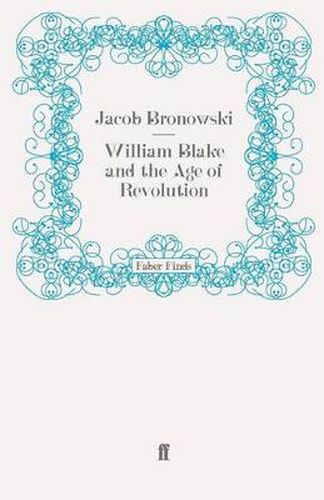Readings Newsletter
Become a Readings Member to make your shopping experience even easier.
Sign in or sign up for free!
You’re not far away from qualifying for FREE standard shipping within Australia
You’ve qualified for FREE standard shipping within Australia
The cart is loading…






Bronowski was fascinated by William Blake for much of his life. His first book about him, A Man Without a Mask, was published in 1944. In 1958 his famous Penguin selection of Blake’s poems and letters was published. As further testimony to Bronowski’s enthusiasm it should be noted that the final plate in the book of his great TV series The Ascent of Man is Blake’s frontispiece to Songs of Experience.
William Blake and the Age of Revolution, first published in 1965, is, in some ways, a revised edition of A Man Without a Mask, in others, a new book. In it Bronowski gives a stimulating interpretation of Blake’s art and poetry in the context of the revolutionary period in which he was working. Like all of Bronowski’s writings it dazzles with wide-ranging erudition, making this work far removed from conventional literary criticism.
$9.00 standard shipping within Australia
FREE standard shipping within Australia for orders over $100.00
Express & International shipping calculated at checkout
Bronowski was fascinated by William Blake for much of his life. His first book about him, A Man Without a Mask, was published in 1944. In 1958 his famous Penguin selection of Blake’s poems and letters was published. As further testimony to Bronowski’s enthusiasm it should be noted that the final plate in the book of his great TV series The Ascent of Man is Blake’s frontispiece to Songs of Experience.
William Blake and the Age of Revolution, first published in 1965, is, in some ways, a revised edition of A Man Without a Mask, in others, a new book. In it Bronowski gives a stimulating interpretation of Blake’s art and poetry in the context of the revolutionary period in which he was working. Like all of Bronowski’s writings it dazzles with wide-ranging erudition, making this work far removed from conventional literary criticism.